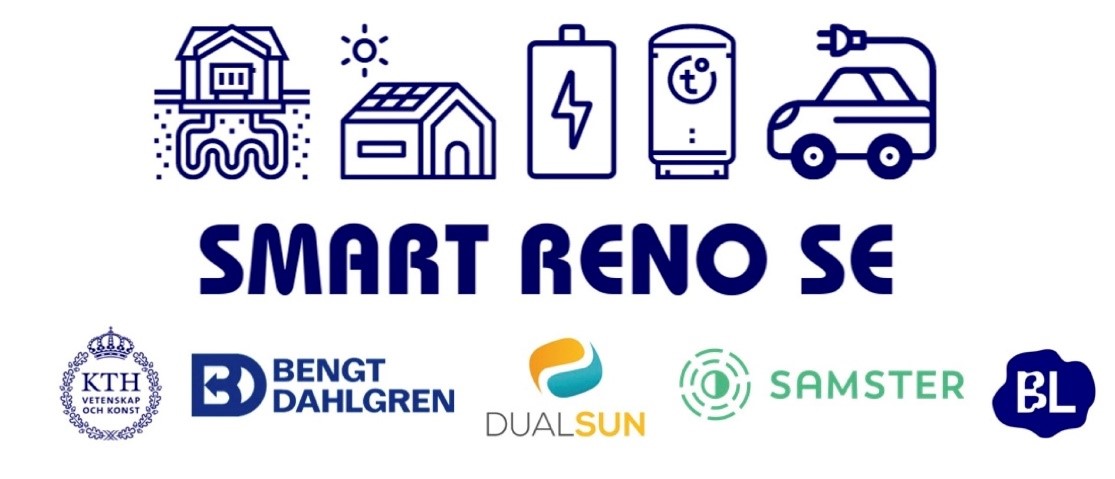Life Cycle Environmental Assessment of Renovation Strategies for Aging Ground Source Heat Pump Systems
Background
Ground source heat pump (GSHP) systems have been widely installed in Swedish single-family homes since the 1990s and early 2000s, providing efficient heating through the use of borehole heat exchangers. However, many of these systems now face performance challenges due to long-term thermal depletion of the ground and under-dimensioned borehole fields, especially when modern replacement heat pumps require higher extraction rates. In such cases, source temperatures decline during peak winter periods, forcing auxiliary electric heaters to activate and resulting in sharp peaks in electricity demand, increased operational costs, and reduced system reliability. These peaks are expected to become even more problematic under newly introduced capacity-based electricity tariffs and rising market price volatility. ¨
Several renovation pathways are currently being investigated to restore performance and reduce peak electricity demand. These include drilling additional boreholes, integrating photovoltaic-thermal (PVT) collectors for ground regeneration, improving building thermal performance through envelope measures, implementing phase-change thermal storage, and managing electrical demand using batteries or electric vehicles (EVs), among others.
This thesis aims to assess the life cycle environmental impact of key renovation strategies for aging GSHP systems. Using established LCA methods and system simulation results, the study will determine the extent to which each pathway reduces environmental burden over system lifetime, and identify trade-offs between embodied emissions and operational benefits. This master’s thesis is part of the Smart Reno SE research project, funded by the Swedish Energy Agency, which aims to develop holistic renovation strategies for existing GSHP systems. Results are expected to contribute to renovation guidelines, journal publications, and decision-support frameworks for homeowners and industry stakeholders.

Thesis goal and structure
The primary objective is to evaluate and compare the life cycle environmental impact of major renovation strategies for aging GSHP systems, accounting for both embodied and operational effects. T
This involves:
-
Conducting a literature review on LCA methodologies for residential energy systems
-
Defining system boundaries and selecting relevant environmental indicators.
-
Using LCA tools or databases to quantify the embodied environmental impacts of the different renovation technologies.
-
Developing a calculation tool to compute environmental performance indicators with clear input templates for future use.
-
Integrating operational performance data from system simulations to assess combined life cycle impacts over system lifetime.
-
Comparing renovation strategies and identifying environmental trade-offs.
Expected outcomes
This work is anticipated to culminate in a master's thesis report that will serve as the foundation for a scientific publication. The findings may be submitted to a peer-reviewed journal or presented at a conference. Therefore, this opportunity is particularly well-suited, but not limited to, students considering pursuing a PhD after completing their studies.
Proposed time schedule
The study is expected to start in January 2026 (wk. 3), and expected to be completed in June 2026 (wk. 23). Intermediate reports will be due at 1/3 and 2/3 intervals, or as needed.
How to apply
If you are interested in this project, please send your CV together with your transcript of records to the contact person Francisco Beltrán . Prior knowledge of LCA is an advantage.
